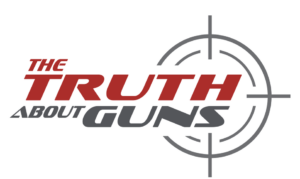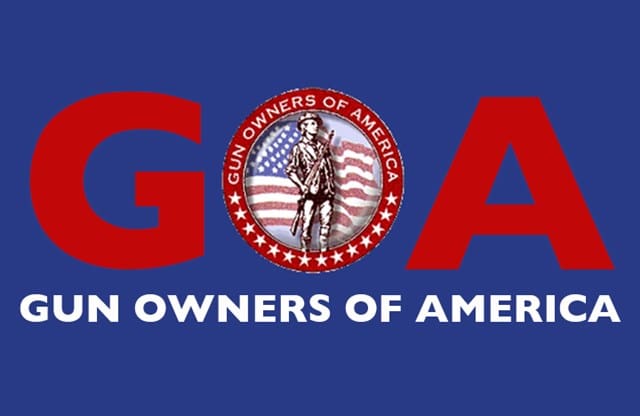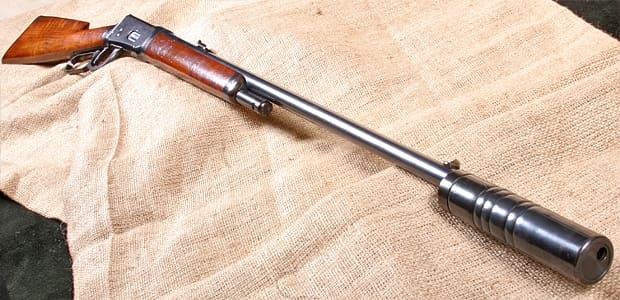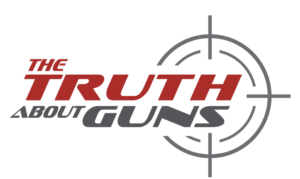This bill will prohibit seized firearms not used in the commission of a felony from being destroyed by law enforcement agencies. These firearms, so long as they are in operable condition, would either be sold to a licensed gun dealer (FFL) or donated to hunter education programs. In addition, it would also mandate that if a firearm has been seized by law enforcement and the owner is acquitted of the charges or the charges are dropped, the firearm must be returned to the owner within thirty days.
It’s likely that most of the guns held by the police are from old domestic protection order cases. The law was reformed in 2014 to require police to return guns or other weapons to owners who were not convicted of any crime. This stops the “legalized theft” of firearms, where departments required individuals to obtain a court order to have their firearms returned. Often, the cost of the court order was more than the firearm was worth. Now, as part of Kansas statute 22-2512(d) :
(d) If a weapon is seized from an individual and the individual is not convicted of or adjudicated as a juvenile offender for the violation for which the weapon was seized, then within 30 days after the declination or conclusion of prosecution of the case against the individual, including any period of appeal, the law enforcement agency that seized the weapon shall verify that the weapon is not stolen, and upon such verification shall notify the person from whom it was seized that the weapon may be retrieved. Such notification shall include the location where such weapon may be retrieved.
This reform will reduce the number of firearms available for auction in the future.
After the law’s passage, in February 2015, kansas.com reported that “More than 200 guns, of various makes and models, will be available on BudsGunShop.com for purchase by licensed firearm dealers, said Elizabeth Harlenske, assistant city attorney.” Something must have happened to scuttle those plans; the Wichita Police are now going to auction the guns to one or more dealers. From kwch.com on December 22, 2015:
Licensed federal firearms dealers get them first and are free to sell the weapons just like any other.
Tuesday the Wichita city council took the first step toward organizing a dealer auction of almost 200 handguns and rifles for the Wichita Police Department. Among those guns are weapons used in crimes from 1997 to 2015.
There hasn’t been a date set for the auction. As with many cities, the handguns collected outnumber long guns. There are about 170 handguns, and 50 long guns to be auctioned. Here is a sample of the handguns listed (excuse the fuzzy graphic):
A much higher percentage of long guns are excellent, sought after, serviceable firearms. But even inexpensive single shot shotguns tend to be of good quality, meant to last a few lifetimes if cared for properly.
These reforms will help restore respect for the law. Having your property taken at gun point, then finding that you will be required to spend more than the property is worth to recover it (when you are found not guilty) does substantial harm to the idea of the rule of law. Any belief that the criminal justice system can be relied on to use a little common sense is destroyed. Without belief in the rule of law, civilized society falls apart, exactly as we have seen in many urban centers.
©2015 by Dean Weingarten: Permission to share is granted when this notice is included.
Link to Gun Watch











A possibly 1903 colt? I’ll take it.
This sounds like common sense gun reform to me.
How does an FFL get access to the list and time? Are out of state dealers ok? I’m interested in seeing examples and maybe making some offers
And here’s the kicker. These things will auction for over retail new…. Really.
Really? Why might that be? I only buy new and I’m always looking for the lowest total cost (price, shipping, sales tax, FFL transfer fee). Why would someone buy something used, with all the uncertainty that implies, when they could go buy brand new for less?
Auction Fever Jonathan-I’ve seen it hundreds of times as an antique dealer. It’s a wonderful thing when you consign crap and it sells for 10times its value…and dealers of all stripes(guns included) don’t want the other guy to get a “deal”. Just human nature…
I agree completely. I was really excited for my first auction. All of the guns offered went for well over what they could have been bought new for. It was guys bidding against each other just to keep each other from getting them. Even on property room.com (Buds has a link to it on their site) I see beaten M&PS, Glocks going for more than new ones. It’s insanity at its best.
Jonathan,
I attended one auction and saw pretty much the same thing. While I managed to buy a new firearm at a slight discount (at most 10% less than I would have paid at any gun store), the FOUR HOURS of my time at the auction (not including round-trip drive time) wasn’t worth it.
I highly doubt that I will be attending any future auctions. If I do consider a future auction, I will be leaving if there are more than a dozen or so attendees.
Yep. Exactly right. Dang shame.
Why are guns used in felonies kept even after fulfilling the duty as evidence?
The PD (and lawmakers) don’t want to sell murder guns. Or attempted murder guns. Or whatever, so they figure felonies is a reasonable cutoff.
What’s wrong with the murder guns? There’s plenty of rifling left in the barrel
That gun in the top right looks like the “Hunting Rifle” from the Fallout series of video games.
Cool ain’t it!
If they passed this in Texas I would not be so hesitant to carry a full size revolver like my Dan Wesson model 15 357 revolver
Why only auction to dealers? Why not auction to the highest bidder, assuming the bidder uses an FFL and passes any local/state requirements to purchase said firearm? In my opinion, this would generate more revenue.
I would imagine that they hope to sell the guns in lots to just a handful of FFLs, or even as one big lot to a single dealer. I doubt they want to deal with the hassle and overhead of transferring hundreds of guns to individuals. They’re a police department, not a gun store.